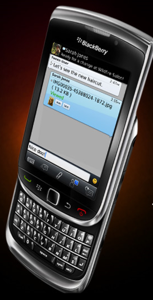The threat to banResearch in Motion‘s BlackBerry mobile device messaging services spread across the Middle East like a brushfire. The threat first arose in the U.A.E., followed by Saudi Arabia. India, Tunisia and Lebanon all threatened to follow suit.

Just three days before the ban was to be implemented in the United Arab Emirates, the telecommunications declared that RIM is “compliant with the U.A.E.’s telecommunications regulatory framework.” The question is, are they compliant because they’ve given up their users’ information or because the U.A.E. backed down? Neither side is talking.
Security officials of the U.A.E. first arrested and harassed BlackBerry users, then proclaimed a coming ban. They tracked and arrested one user, 18-year-old Badr Ali Saiwad Al Dhohori, who had organized a protest against rising gas prices. They used him to reach other users.

Last month, Saudi Arabia, which had also promised a ban, relented. No explanation was forthcoming then either. It seems likely that either RIM gave both countries access to the encryption keys that governed their services, or the countries realized what a titanic business backlash would result from going forward.
RIM’s response to our questions was not terribly illuminating.
“RIM cannot discuss the details of confidential regulatory matters that occur in specific countries, but RIM confirms that it continues to approach lawful access matters internationally within the framework of core principles that were publicly communicated by RIM on August 12.”
The August 12th statement included this assertion.
“(C)ontrary to any rumors, the security architecture is the same around the world and RIM truly has no ability to provide its customers’ encryption keys.”
However, Reuters reported that RIM surrendered a proposal to provide India’s security groups with “partial access” to such information. RIM does not appear to have denied outright providing such access.

















